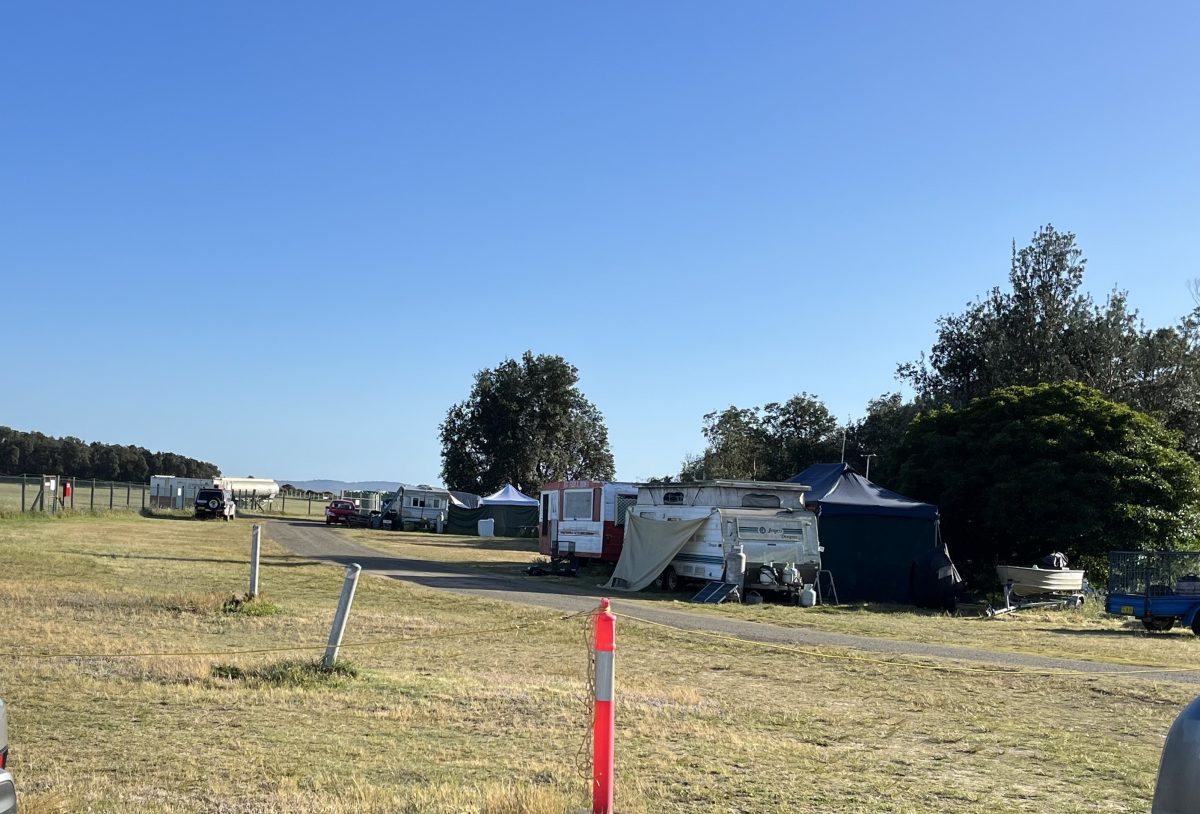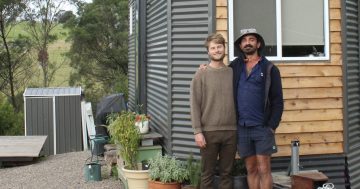
Some people have taken to camping at Moruya Airport to keep a roof over their heads. Photo: Kim Treasure.
People who have no choice but to live in tents to avoid homelessness won’t be evicted from two Eurobodalla council-run campgrounds.
Eurobodalla Shire councillors resolved to enter into agreements with long-term tenants to manage their stay as they continue to search for alternative accommodation, rather than enact a legal requirement to order those who have stayed longer than 50 days to leave.
These agreements would require people to comply with standard campground rules, as well as any additional rules required by council to manage their stay.
“Obviously this is a tourist destination and those campgrounds are very popular for our tourists,” Mayor Matthew Hatcher said.
“But our reality on the ground is we’re in this situation and we’ve got to look after the people who are there.
“There is no easy solution to this and it’s great to see all the different pieces working together, be that council and the other stakeholder agencies doing work on the ground.”
The council operates two camping grounds which have been chosen by long-term campers to erect their tents – Moruya North Head and Mystery Bay Campgrounds – under section 68 of the Local Government Act 1993.
To comply with regulations, council would need to evict people who have stayed longer than the 50-day limit.
Councillors agreed the “greater good” would be served to the community if council used its discretion to not enforce this regulation.
Property and Commercial Services divisional manager Andrew Greenway told councillors while he didn’t feel this was a “viable place” for people to live, there were simply no other options at this time.
“Some of the people need short-term emergency housing, but it’s just not available,” he said.
“[Our campgrounds] are currently the only place, and we’ve got the means of managing people while they’re there.”
Planning and Sustainability Services director Lindsay Usher agreed it wasn’t an “ideal” situation.
“What we’re doing here really is just … showing some compassion to these people and not enforcing the regulation,” he said.
Mr Usher noted while there had been complaints about security breaches in and around the areas people were staying, and that council was losing money as a result of this decision, he felt it was the right thing to do.
“Some councils have gone in with a big stick and kicked people out [while] we’re trying to work with government agencies and with the tenants in place,” he said.
“It’s not an ideal situation, but it’s one which we’ll need to do more advocacy on in terms of trying to get these people into a much better site.”
Council has previously attempted to work with the State Government to find solutions to the region’s housing crisis, but none have been agreed upon thus far.
Mayor Hatcher said they would continue to “fight” for residents who needed help.
“We’ll continue to push the State Government to change its opinion and do more for this community,” he said.
It’s as a new Everybody’s Home report has found rents across NSW have surged between $17 and $70 per week since November 2021.
It found the South Coast had an “eyewatering high” of $595 per week, the highest compared with other regions.
Everybody’s Home national spokesperson Maiy Azize said this year’s “perfect storm” of the rising cost of living and stagnant wages had hit renters hard.
“It’s been a shocking, challenging year for regional NSW tenants. Inflation is yet to peak while wages aren’t keeping up. Landlords have passed the cost of interest rate rises onto renters. Floods have had a devastating impact on lives and housing stock, and residential vacancy rates remain below one per cent in many regions,” she said.
“It’s been a year where we’ve heard countless stories of people living in tents and shoddy accommodation across the regions.”
She said it meant many were likely to rein in their Christmas celebrations in an attempt to not end up on the streets.
“Having a roof over your head is choking household budgets ahead of what is already traditionally an expensive time of year,” Ms Azize said.
“Sadly, many will likely rein in the festive celebrations simply because they can’t afford it and don’t want to risk becoming homeless.”














